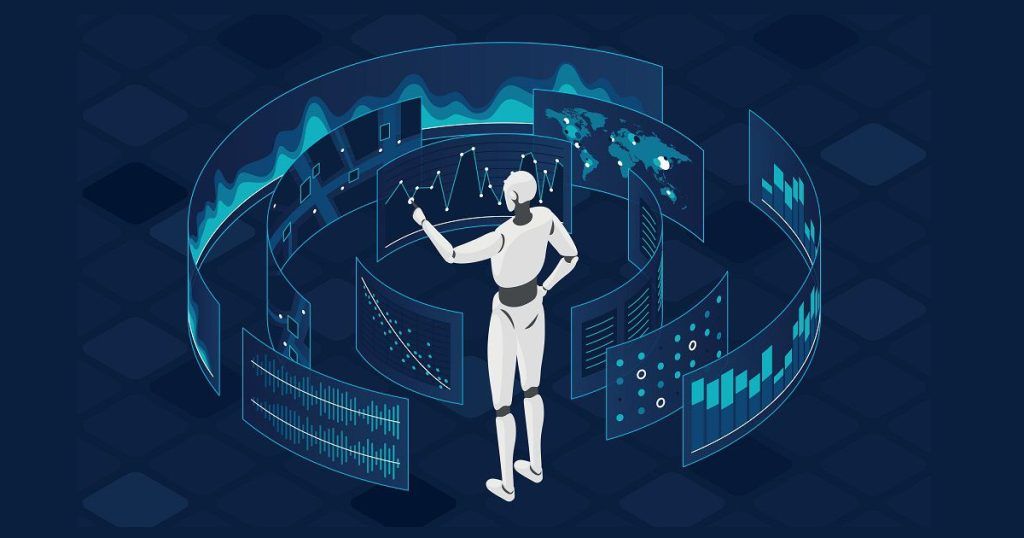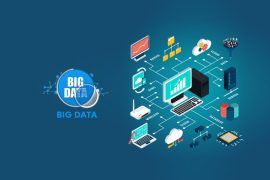Artificial Intelligence (AI) is a technology that emulates human intelligence by making use of vast amounts of data in its functions and learning processes. Although still relatively novel in concept, AI is already used in almost every industry worldwide. As many may assume, AI stands for artificial intelligence – or AI as most refer to it. AI’s applications span beyond robotics and automation into cars and even astronomy! As this all-encompassing technology serves a multitude of fields, industries often turn to it to automate processes within their organizations. AI can bring many advantages for businesses in many ways, from improved customer service and productivity gains to streamlining processes and streamlining workflow. AI is also playing an increasingly significant role in SaaS (Software-as-a-Service), an emerging software service model. SaaS (Software as a Service) refers to Software developed and hosted on the cloud via Internet access. Benefits associated with developing SaaS services for Business include cost, ease of use, and expanding reach. Integrating AI into SaaS products is an efficient solution to help maximize revenue and deliver improved services to customers. While businesses recognize its advantages, AI adoption still needs to grow. SaaS uses AI for enhanced performance and functionality as well as tailored services; companies may gain from adding this advanced technology that is capable of making intelligent decisions from data.
Table of Contents
What’s the Role of Artificial Intelligence in SaaS?

AI extends SaaS capabilities and opens users up to advanced functionality. Grammarly uses AI, for instance, to identify grammar errors and offer corrections. AI has become an integral part of many SaaS offerings; here are a few examples of how it’s being applied in SaaS products.
How do SaaS Companies Leverage AI to Gain a Competitive Edge?
SaaS stands for Software as a Service, and it refers to businesses in this field that provide online services via their servers for paid customers to access – usually on either an annual or monthly contract, depending on each agreement. Demand has skyrocketed as online workspaces like COVID-19 become commonplace. Businesses within this sector will soon face fierce competition as each seeks ways to set themselves apart by increasing employee satisfaction or adopting cutting-edge corporate culture trends – but businesses must embrace AI technology now before their competitors do!
The Future of SaaS: How Artificial Intelligence (AI) Will Shape the SaaS Future in 2024
SaaS businesses have emerged as an exciting topic when discussing artificial intelligence (AI). When considering its advantages for SaaS businesses, it’s crucial to identify its features, which could help the organization meet its primary goals more quickly.
1. Data-Driven Decision Making
SaaS companies recognize the significance of accurate data. Basing every decision on accurate statistics helps companies mitigate risks. Attempts should not be taken lightly when collecting such vital information for decision-making processes. Data collection by humans can often be time-consuming and error-prone; however, we have come a long way since people used questionnaires or interviews to gather this data.
Now, there are hundreds of platforms, services, and tools that assist companies. Consider LMS analytics tools; AI for Business enhances this process further with Machine Learning. SaaS firms are using AI in data collection efforts in order to reduce human interaction. AI’s primary benefit lies in its capacity for improvement and learning – as more businesses adopt it, its accuracy will grow, helping SaaS firms make informed decisions and analyze situations more accurately.
2. Cost Reduction
Technology advancements throughout history have had cost-cutting impacts that ripple throughout society. AI is no exception, providing businesses with cost-reduction benefits by automating operations and making data-driven decisions more efficiently – two benefits that often go hand-in-hand with each other. AI can offer companies significant cost-cutting and revenue-enhancement benefits in many areas of operation.
This technology has the power to dramatically lower expenses across many cost types; we will discuss those most prevalent in SaaS Business here. However, implementation may come with associated costs, including initial development and ongoing support – these should all be carefully considered when considering potential savings potentials.
3. Personalization
While every client may differ in terms of needs, goals, and budget, using your service may also vary widely – therefore, personalization has become even more essential to its effectiveness. Understanding your customers’ needs and determining your role within them are the keys to providing personalized services that satisfy them.
Resources may sometimes present barriers; having enough people, money, and time available could enable you to give every client individual attention. AI for Business promises a solution with Machine Learning, making personalizing services possible through AI technology.
Your AI will gather customer information and treat each one individually – your clients will appreciate this tailored approach to service delivery that produces more measurable outcomes for them!
4. Enhanced Security
Security can be one of the most significant challenges faced by companies dealing with large volumes of information, especially SaaS firms that must protect both their information and users’ data. AI solutions offer much in terms of improving this aspect of security.
AI can assist SaaS providers in the prevention of data leakages through automation scanning, behavioral analyses, and real-time monitoring of SaaS providers’ networks.
AI can use real-time and historical data to identify security threats and take proactive measures to decrease them, helping SaaS firms remain ahead of evolving cyber threats. AI utilizes Machine Learning extensively – gradually strengthening your organization’s security over time.
5. Streamlined Operations
Automation is critical for the success of an online business, not only as an efficient means of saving both time and money but also to prevent human mistakes from entering processes manually. More and more companies are opting to automate internal processes. Integrating artificial intelligence (AI) into your business operations promotes more critical thought.
Before AI implementation, your employees might have spent too much time performing repetitive tasks or conducting time-consuming analyses that consumed too much of their attention spans. Your employees can focus more of their efforts on tasks requiring human interaction, like critical thinking, eye-to-eye observation, and creativity. AI-powered business operations enable SaaS companies to improve customer experience while decreasing expenses and growing revenues.
6. Customer service
AI/ML can be a compelling way of improving customer service and personalization for SaaS companies, with powerful algorithms used to understand users’ behaviors, preferences, and interactions in greater depth than ever. These platforms can deliver highly tailored experiences for individual users thanks to AI algorithms’ abilities to analyze large datasets and identify meaningful patterns or trends within them.
SaaS providers must adapt to changing preferences and user behavior through continuous learning in order to offer tailored solutions explicitly tailored to each user’s individual needs and expectations. This requires more than providing generic solutions – SaaS providers must customize every interaction according to personal user expectations and meet them every time a transaction takes place.
Imagine that a SaaS platform with advanced AI capabilities could anticipate user requirements before they have even been articulated – that it could recommend certain features or functionalities or anticipate challenges that users could potentially be encountering before users voice them themselves! Imagine what that platform might accomplish! Anticipatory, personalized experiences not only elevate user experiences but also demonstrate SaaS providers as partners who offer intuitive advice throughout their users’ journeys.
7. Scalability beyond human capability
Furthermore, AI-powered personalization goes well beyond initial onboarding processes to bring tangible benefits for future engagement with SaaS solutions. Artificial intelligence-powered personalization has an immediate and widespread effect on users, from adopting new features to solving issues. SaaS platforms use AI-powered personalization techniques such as adaptable interfaces, personalized content recommendations, and customized workflows dynamically in order to provide users with a highly customized user experience – one in which they feel understood yet provided for on an intimate personal level.
Recent research indicates that contrary to B2B firms’ expectations of longer cycles in the past, customers will soon adapt to more expedient processes due to technological developments. AI’s potential as an infrastructure solution cannot be overlooked – imagine being able to detect bugs immediately upon occurring and correct them instantly! AI systems offer this unique benefit.
Conclusion
Many believe we are moving into an AI age. Businesses quickly embrace AI’s benefits to take full advantage. So far, it has shown great promise in increasing revenue for SaaS businesses; AI won’t go anywhere either and will continue providing benefits like cost reduction, automation of processes, improved security measures, and personalization features to benefit SaaS businesses; we have only scratched the surface in terms of AI’s potential; early adopters in Business will enjoy its rewards; we look forward to witnessing its effects in business life!
Also read
Top 10 AI Tools for Business: Streamlining Operations and Decision-Making





